IN THIS ISSUE of Charleston Currents #11.12 | Jan. 28, 2019
FOCUS: Flagship-Bridge incubator opens with 20 tech businesses
COMMENTARY, Brack: Early books are first step to education reform success
IN THE SPOTLIGHT: Charleston Gaillard Center
GOOD NEWS: Feb. 8 symposium to focus on Second Amendment, gun policy
FEEDBACK: Readers appreciate King’s principles, frosted on overdevelopment
MYSTERY PHOTO: Lowcountry-style building might be tough to identify
S.C. ENCYCLOPEDIA: South Carolina’s opera houses
CALENDAR: Three workshops this week on rapid transit
FOCUS: Flagship-Bridge incubator opens with 20 tech businesses
Staff reports | The Charleston Digital Corridor has opened the Flagship-Bridge, a tech-focused business incubator that is housing 20 tech companies. The development of the facility in downtown Charleston at 385 Meeting Street was necessitated due to the redevelopment of the property that formerly housed the Flagship and Flagship2, according to a press release
The Flagship-Bridge office is approximately 14,000 square feet on a single floor and contains 22 offices of various size configurations, two conference rooms and a sprinkling of open areas for co-working and team collaboration.
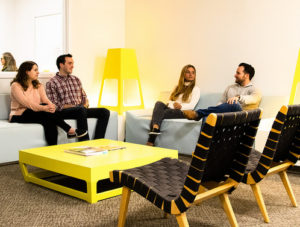 Some of the new business services now being offered by the Charleston Digital Corridor at the Flagship-Bridge include monthly co-working memberships, virtual offices and mail handling services exclusively for tech companies.
Some of the new business services now being offered by the Charleston Digital Corridor at the Flagship-Bridge include monthly co-working memberships, virtual offices and mail handling services exclusively for tech companies.
“The completely new up-fit at the Flagship-Bridge is a blessing in disguise. It has allowed us to consolidate our operation into a single facility, accommodate the growth of some of our resident companies, bring our updated design sensibilities to fruition and audition tech services that could be deployed at the Charleston Technology Center,” said Charleston Digital Corridor Director, Ernest Andrade.
“The updated facility and office proximity to restaurants and shopping on King Street, combined with the gigabit data speeds and brain trust in the building make our relocation to the Flagship-Bridge a huge win,” said Bobby Schuchert. “We love it”
- Have a comment? Send to: editor@charlestoncurrents.com
BRACK: Early books are first step to education reform success
By Andy Brack, editor and publisher | If you want real education reform, give a free book a month to every child under five in South Carolina.
 It’s a common-sense, quick, practical, affordable and proven investment that can make more of a difference than most of the fiddle-faddle in thick policy papers. It’s low-hanging fruit. And it’s easily achievable because there’s a delivery network already in place. It’s something Gov. Henry McMaster and legislators like GOP House Speaker Jay Lucas and Democratic Sen. Vincent Sheheen should embrace now.
It’s a common-sense, quick, practical, affordable and proven investment that can make more of a difference than most of the fiddle-faddle in thick policy papers. It’s low-hanging fruit. And it’s easily achievable because there’s a delivery network already in place. It’s something Gov. Henry McMaster and legislators like GOP House Speaker Jay Lucas and Democratic Sen. Vincent Sheheen should embrace now.
Providing free, age-appropriate books to children under 5 nourishes them at the critical time their brains are developing. Building small libraries in the homes of young families in South Carolina is an investment that can propel South Carolina forward from its terminal bottom ranking in education.
Mailing monthly books to kids is working now. It got started 22 years ago in Tennessee with the creation of Dolly Parton’s Imagination Library. Since then, the program mails more than a million books to children all over the world.
Patty Bennett-Uffelman of Charleston knows the program is working. Her organization, Begin with Books, sends books monthly to more than 4,800 children in Charleston County through the Imagination Library. She recalls a mother who approached her with a 5-year-old girl who received “Goodnight, Gorilla” through the program. The girl hugged the book and the mother shared how “gorilla” was the girl’s second word – just after “mama.”
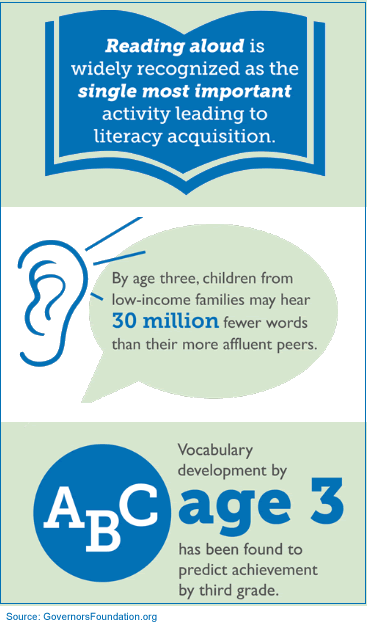 “The mere presence of books in the home generates an enriched vocabulary, enriched conversation, and is more likely to introduce more formal sentence expression in low-literacy homes,” Bennett-Uffelman told us.
“The mere presence of books in the home generates an enriched vocabulary, enriched conversation, and is more likely to introduce more formal sentence expression in low-literacy homes,” Bennett-Uffelman told us.
Studies show Tennessee participants “significantly outperformed non-participants on kindergarten literacy assessments,” according to the Palmetto Project. “They maintained that edge through the third grade, and even into high school.” The evidence showed elementary school assessments of participants that were 7 percent higher than non-participants.
Currently, the Palmetto Project operates a program that sends an additional 31,000 books to children under 5 into 33 other counties across the state, including Horry, where Parton pays for that county’s 7,721 kids to get early books.
Steve Skardon, head of the organization, says children who get the free books are one-third more likely to be kindergarten-ready. They are much more likely to have better skills for oral communication, written language and math. And parents in the program are three times more likely to read to their children, a key for early learning and vocabulary achievement.
“This is not about teaching children to read,” Skardon says. “It’s about growing their intellectual capacity to read in the future during those early years when it matters.
“Never has there been so much evidence that traditional thinking about early literacy is wrong. Yet, we continue to teach reading the way we did generations ago and somehow expect to get different outcomes.”
While 36,000 children under 5 are participating in the program thanks to volunteers, nonprofits, service clubs and donors, there’s not enough funding to pay for the remaining 250,000 S.C. children to get a free book once a month. The annual cost per child is $33, including books and postage.
The Palmetto Project estimates the cost to make the program available to all children – only about two-thirds of whom would be expected to enroll – would be about $6 million a year. And all that the state would have to do would be to write an annual check. It wouldn’t have to hire any other employees or put a burden on state agencies because the delivery and logistics network is in place.
Expanding the Imagination Library statewide is reasonable, affordable no-brainer. It’s the perfect investment to prepare children, particularly those in low-income families, to learn at the time it is most critical in their development. And if they don’t get this intellectual fertilization? They won’t be as ready as they could be for school and will start out behind, just like they do today.
North Carolina has committed to $10.5 million a year to fund the Imagination Library. Arkansas is organizing an $8 million foundation to kick it off. Can’t South Carolina adopt this practical education strategy to nurture children so they can be ready to learn when they get to school?
- Have a comment? Send to: editor@charlestoncurrents.com
SPOTLIGHT: Charleston Gaillard Center
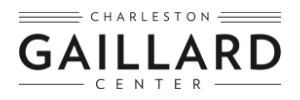 Charleston Gaillard Center provides the Lowcountry with a world-class performance hall, elegant venue space and vibrant educational opportunities that inspire dynamic community throughout the area through the power of the performing arts. The Center’s vision is to enrich the diverse community of Charleston with artistic and cultural experiences that are accessible and unique, and to serve as an educational resource for generations to come.
Charleston Gaillard Center provides the Lowcountry with a world-class performance hall, elegant venue space and vibrant educational opportunities that inspire dynamic community throughout the area through the power of the performing arts. The Center’s vision is to enrich the diverse community of Charleston with artistic and cultural experiences that are accessible and unique, and to serve as an educational resource for generations to come.
Did you know that the Charleston Gaillard Center is a 501c3 non-profit that works with over 25,000 students each year from the tri-county area? Promoting education is one of the core values of the Charleston Gaillard Center and an integral part of our mission. By broadening the reach of arts-education in the Lowcountry the Gaillard Center encourages learning through the arts and serves as a powerful tool for student achievement and personal development while providing people of all ages with the opportunity to cultivate and grow their talents and appreciation for the arts. To learn more about our education initiative, click here: www.gaillardcenter.org/outreach.
For more information, click the links below:
- Buy tickets and see our great events
- Become a member today
- Plan your event at the Charleston Gaillard Center
- Learn about our education and community programs
- Contact the Gaillard Center.
- To meet all of our underwriters, click here.
GOOD NEWS: Feb. 8 symposium to focus on Second Amendment, gun policy
Staff reports | Two Duke University law school professors will kick off a Feb.8 symposium that examines the Second Amendment to the U.S. Constitution in a new and positive light.
![]() The conference at the Charleston Music Hall, which includes other law professors, attorneys and a state representative, is hosted by the Charleston Law Review of the Charleston School of Law and the Riley Institute at Furman University.
The conference at the Charleston Music Hall, which includes other law professors, attorneys and a state representative, is hosted by the Charleston Law Review of the Charleston School of Law and the Riley Institute at Furman University.
“There are lots of epithets but not a lot of understanding” about the Second Amendment, write Duke law professors Joseph Blocher and Darrell A.H. Miller in a blog post about their new book on how the Second Amendment can inform policymakers about gun regulation. “There’s lots of shouting but not a lot of listening. Too often, the Second Amendment is used as a shibboleth, a way of separating ‘us’ from ‘them.’”
On Feb. 8, Blocher and Miller will present an 8:45 a.m. keynote address, “The Second Amendment as Positive Law,” to share how the amendment can be used to facilitate constructive discussions about gun policy.
“This is exactly the approach that our country needs to be taking these days,” said Ed Bell, president of the Charleston School of Law. “We and the Riley Institute are honored to provide a platform for in-depth, relevant discussions on gun policy and hope this exchange of ideas will lead to better ways to handle the rights and responsibilities of gun ownership.”
Don Gordon, executive director of the Riley Institute at Furman, said he expected a large crowd for the discussion, which is open to the public but requires registration.
“In a time of immense controversy over how we should respond to gun deaths, both from high-profile mass shootings and from lower-profile suicides and homicides, it is critical to come together and examine the constitutional meaning and intent of the Second Amendment,” Gordon said.
After the keynote address, the symposium will continue with three panel discussions, including a look at state and local attempts at gun control as well as ethical and moral issues related to the Second Amendment. The symposium is free and open to the public, but registration is required. Space is limited. Attorneys who attend can get Continuing Legal Education credits at no cost.
In other Good News:
Hats off! The Charleston Defense Contractors Association — a non-profit defense advocacy group —announced that Netizen Corp., which has offices on King Street in Charleston, was selected as Best-in-Show during the first-ever Innovation Spotlight Competition held during the 12th Annual Defense Summit. Recognized for its CyberSecure Dashboard, Netizen Corp.’s innovative solution provides a dashboard of risk, vulnerability, and threat information to the managers and executives who need the information most. Michael Hawkins and Max Harris received the Innovation Spotlight award on behalf of Netizen Corp. More than 1,300 people attended the summit last week.
Increased services. Palmetto Community Care – which rebranded from Lowcountry AIDS Services – increased its prevention and education services. The nonprofit has expanded its focus on testing, outreach and HIV prevention education to rural areas of Dorchester and Berkeley counties as well as targeted high-risk communities in Charleston County. In 2018, Palmetto Community Care tested almost 1,700 people for HIV, recording 23 new HIV-positive cases. That number was up from 20 new HIV-positive cases in 2017.
FEEDBACK: Readers appreciate King’s principles, frosted on overdevelopment
To the editor:
![]() Thank you for posting Dr. King’s 6 Principles. They are critically important tools of engagement and civic progress needed today.
Thank you for posting Dr. King’s 6 Principles. They are critically important tools of engagement and civic progress needed today.
— Graham McClain, Florence, S.C.
To the editor:
Thank you for Elliott Brack’s list of Dr. King’s principles and steps for non-violent resistance. It was interesting to note how similar the process used by the Charleston Area Justice Ministry is to the Six Steps.
The Justice Ministry is modeled on a movement that originated in Miami and is now at work implementing social change in over 20 U.S. metropolitan areas. The process at work in the Charleston area for several years has accomplished, in collaboration with local governing bodies, law enforcement agencies and the school board, significant improvement in a number of areas of community concern.
— Bruce Jayne, Saluda, N.C.
Overdevelopment makes reader’s heart sick
To the editor:
What is happening to the Naval Complex in North Charleston is unforgivable. This area is one of the most important parts of our history.
I feel that some may have to do with the younger generation who are our decision-makers and are too young to even care about World War Two. Part is that greed and developers are destroying our precious history.
Charleston was once a small town full of charm. Now it is just like any other commercial tourist spot. It makes me heart sick.
— Irene Smith, Charleston, S.C.
Tell us what you think
We’d love to get your impact in one or more ways:
Send us a letter: We love hearing from readers. Comments are limited to 250 words or less. Please include your name and contact information. Send your letters to: editor@charlestoncurrents.com. | Read our feedback policy.
Tell us what you love about the Lowcountry. Send a short comment – 100 words to 150 words – that describes something you really enjoy about the Lowcountry. It can be big or small. It can be a place, a thing or something you see. It might the bakery where you get a morning croissant or a business or government entity doing a good job. We’ll highlight your entry in a coming issue of Charleston Currents. We look forward to hearing from you.
MYSTERY: Lowcountry-style building might be tough to identify
A reader sent in this red-roofed Lowcountry-style house, which makes sense because it’s located in the Lowcountry. But what and where is it? Hope this one isn’t too hard. Send your guess to: editor@charlestoncurrents.com. And don’t forget to include your name and the town in which you live.
Our previous Mystery Photo
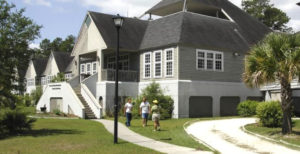 Our previous mystery, “It’s not a resort,” sparked some interesting guesses, such as a golf clubhouse on Kiawah and a visitors’ center in Berkeley County. But the image was of the main laboratory building at the Baruch Institute in Georgetown County, a location identified by only three eagle-eyed readers: Cheryl Smithem of Summerville; George Graf of Palmyra, Va.; and Chris Brooks of Mount Pleasant. Congrats!
Our previous mystery, “It’s not a resort,” sparked some interesting guesses, such as a golf clubhouse on Kiawah and a visitors’ center in Berkeley County. But the image was of the main laboratory building at the Baruch Institute in Georgetown County, a location identified by only three eagle-eyed readers: Cheryl Smithem of Summerville; George Graf of Palmyra, Va.; and Chris Brooks of Mount Pleasant. Congrats!
Graf provided this context via baruch.sc.edu: “The main laboratory building (21,645 sq ft) comprises research laboratories, a computer center, seminar room, conference-dining room, archived-sample room, classroom, site library, teaching lab, walk-in refrigerators and freezers, large screened work areas, and technical and administrative support offices. Tapped seawater is available in the research laboratories. Internet and a video teleconferencing system provide for interaction with researchers in Columbia or other locations and access additional research resources. Analytical equipment includes inorganic and carbon analyzers, spectrophometers, high quality light microscopes, and a scintillation counter. Ground-based LIDAR, infrared and multispectral cameras, kite-balloon, or other field-based equipment are also available. A wing of the main building houses the North Inlet-Winyah Bay National Estuarine Research Reserve which provides an additional classrooms, teaching laboratories, computer labs, and offices in support of educational programming and research.”
Send us a mystery: If you have a photo that you believe will stump readers, send it along (but make sure to tell us what it is because it may stump us too!) Send it along to editor@charlestoncurrents.com.
HISTORY: South Carolina’s opera houses
S.C. Encyclopedia | In the period between 1880 and 1920, opera houses flourished in communities across South Carolina. Beginning in the 1880s, as the state recovered from the Civil War, opera houses provided live entertainment for citizens who were able to afford leisure activities. By 1915 there were opera houses in Columbia, Sumter, Greenville, Florence, Newberry, Darlington, Laurens, Marion, Abbeville, and Bishopville, among other communities.
Especially in the larger towns, opera houses were imposing, architecturally distinctive buildings with elaborate interiors. Newberry’s three-story brick opera house, featuring a bell tower, was constructed in 1882. Sumter’s 1893 opera house was a three-story, Richardson Romanesque stone structure with a one-hundred–foot clock tower. Columbia’s second opera house, built in 1900, was three stories with two towers. It had a large stage, concealed overhead machinery for curtains and scenery, an orchestra pit, spectator boxes, and two galleries. In smaller communities, opera houses were more modest and often located on the second floor of multi-purpose buildings. For example, the opera house in Laurens was situated above the city hall, and Marion’s opera house was on the second floor of a building that housed the courtroom, jail, and fire department on the first floor.
“Road shows” that traveled the country provided dramatic productions, musical comedies, operas, minstrel shows, and other live entertainment. Columbia’s opera house booked Broadway hits and stars such as Sarah Bernhardt, Ethel Barrymore, Lillian Russell, and Nat Goodwin. Even in a smaller community such as Abbeville, special trains brought theater patrons from nearby towns to see traveling shows such as the Klansman, Yankee Drummer, the Ziegfeld Follies, or an escape artist. The Marion Opera House featured traveling theatrical companies as well as local talent.
By the 1930s the new sound movies had eclipsed live entertainment, and some of the opera houses converted to motion picture theaters. By 1941 South Carolina: A Guide to the Palmetto State reported, “Most of the old opera houses in the State have now been preempted for movie theatres.” In the decades after 1930 most of the opera houses in the state were demolished. A few survived, however, and in the last decades of the twentieth century several of them were restored, including the Abbeville Opera House, the Sumter Opera House, the Marion Opera House, and the Newberry Opera House.
— Excerpted from an entry by Mary W. Edmonds. This entry may not have been updated since 2006. To read more about this or 2,000 other entries about South Carolina, check out The South Carolina Encyclopedia, published in 2006 by USC Press. (Information used by permission.)
CALENDAR: Rapid transit workshops in three locations this week
Staff reports | The Berkeley-Charleston-Dorchester Council of Governments will hold three interactive, public community workshops Jan. 29 to Jan. 31 in Charleston, Summerville and North Charleston to kick off the next phase of the Lowcountry Rapid Transit project. These meetings will be an opportunity to receive an update on the project and weigh in on the vision for the system.
 Charleston workshop: 6 p.m. to 8 p.m., Jan. 29, International Longshoremen’s Association Building – Community Hall, 1142 Morrison Dr, Charleston, SC 29403
Charleston workshop: 6 p.m. to 8 p.m., Jan. 29, International Longshoremen’s Association Building – Community Hall, 1142 Morrison Dr, Charleston, SC 29403- Summerville workshop: 6 p.m. to 8 p.m., Jan. 30, Alston-Bailey Elementary School. 820 W 5th North St., Summerville, SC 29483
- North Charleston workshop: 6 p.m. to 8 p.m., Jan. 31, The College Center at Trident Tech, 7000 Rivers Ave, North Charleston, SC 29406
- For more information on the project, visit the project website at www.lowcountryrapidtransit.com.
Also on the Calendar:
Aquarium’s Oysterfest: 7:30 p.m., Feb. 1, S.C. Aquarium, 100 Aquarium Wharf, Charleston. The Aquarium’s 5th annual Oysterfest is an all-inclusive event that features local, sustainable oysters, chili and chowder along with a beer and wine bar and up-close animal encounters. Reel Time Charters is providing fresh, local oysters which will be roasted by Charleston Outdoor Catering. Sample bowls of chili and chowder will be served up by ACME Lowcountry Kitchen, The Mills House, Charleston Harbor Fish House, Fleet Landing Restaurant & Bar, CRU Catering and B. Gourmet Catering. Tickets are $50 and can be purchased at scaquarium.org/afterhours.
Events at the Gaillard. Check out these awesome coming events at the Charleston Gaillard Center, 95 Calhoun St., Charleston:
Feb. 1 and Feb. 2, 7:30 p.m.: Charleston Symphony Orchestra presents Handel’s Royal Fireworks.
Feb. 5, 7:30 p.m.: Shanghai Opera Symphony Orchestra.
Feb. 19, 7 p.m.: Rodgers + Hammerstein’s Cinderella.
Feb. 22, 1 p.m. and 3:30 p.m.: Magic School Bus: Lost in the Solar System
Save the Light Half Marathon and 5K: Race starts 8:30 a.m., Feb. 2, Folly Beach Pier. The race supports the preservation of the Morris Island Lighthouse by Save the Light, a grassroots non-profit organization that formed to save the lighthouse from being lost to the sea. Both USATF certified races start and finish near the Folly Beach Pier. Half Marathon is a run-only event. The 5K is open to runners and walkers. Fees vary. More: CharlestonCountyParks.com
Veeck talk: 11:30 a.m., Feb. 7, Halls Chophouse, 434 King St., Charleston. Mike Veeck, a popular owner of the Charleston RiverDogs who spearheads stellar and fun baseball promotions, will be guest speaker at the Small Business Lunch series. Tickets are $32 for a three-course meal. Reserve a seat.
The Curious Gardener: 11 a.m. to 1:30 p.m., Feb. 10, Yeamans Hall Club, Hanahan. Anna Pavord, a well-known English writer on gardening, will be featured speaker at a lunch with the Charleston Horticultural Society. Spaces are limited. Tickets are $145 per person and include reception, signing of her book (The Curious Gardener), silent auction and her presentation. More: 843.570.9922.
Outside Agitator talk, signing: 5 p.m., Feb. 15, Blue Bicycle Books, 420 King St., Charleston. Author Adam Parker and his subject, Cleveland Sellers Jr., will offer a public book talk and signing for the recently published book, “Outside Agitator: The Civil Rights Struggle of Cleveland Sellers Jr.”
Southeastern Wildlife Exposition: Feb. 15 to Feb. 17, downtown Charleston. This grand, annual three-day festival focuses on what people across the region love about wildlife and nature. SEWE has an incredible lineup of events – from fine art exhibits, conservation education, sporting demonstrations and parties. Learn more.
Women, Wine & Shoes: 6 p.m. to 9:30 p.m., Feb. 21, Hotel Bennett, downtown Charleston. This fun annual benefit for Florence Crittenton Programs of South Carolina will feature designer shopping, wine tasting, great food and a fashion show. Tickets are $175 per person and seating is limited. Learn more.
Commissioning of USS Charleston: 10 a.m., March 2, Columbus Street Terminal. Charleston. A commissioning ceremony for the new USS Charleston (LCS 18), an Independence-class littoral combat ship, requires anyone who wishes to attend to register this month and soon through the Navy League of Charleston. In late January or early February, the Navy will send an letter to those who registered online with further instructions. Then the Navy will send invitation tickets to successful registrants. If you can’t attend, you can watch online here. More info.
Early morning bird walks at Caw Caw: 8:30 a.m. every Wednesday and Saturday, Caw Caw Interpretive Center, Ravenel. You can learn about habitats and birds, butterflies and other organisms in this two-hour session. Registration not required, but participants are to be 15 and up. $10 per person or free to Gold Pass holders. More: http://www.CharlestonCountyParks.com.
AREA FARMERS MARKETS
SATURDAYS: Johns Island Farmers Market operates each Saturday from 9:30 a.m. to 1:30 p.m. year-round with more than 50 local farmers and vendors, food trucks, music and more. The market is located on the campus of Charleston Collegiate School, 2024 Academy Road, Johns Island.
- If you have an event to list on our calendar, please send it to feedback@charlestoncurrents.com for consideration. The calendar is updated weekly on Mondays.
If you like what you’ve been reading, how about considering a contribution so that we can continue to providing you with good news about Charleston and the Lowcountry. Interested? Just click the image below.
OUR UNDERWRITERS
Charleston Currents is an underwriter-supported weekly online journal of good news about the Charleston area and Lowcountry of South Carolina.
- Meet our underwriters
- To learn more about how your organization or business can benefit, click here to contact us. Or give us a holler on the phone at: 843.670.3996.
OUR TEAM
Charleston Currents offers insightful community comment and good news on events each week. It cuts through the information clutter to offer the best of what’s happening locally.
- Mailing address: P.O. Box. 22261 | Charleston, SC 29413
- Phone: 843.670.3996
Charleston Currents is provided to you weekly by:
- Editor and publisher: Andy Brack, 843.670.3996
- Contributing editor, common good, Fred Palm
- Contributing editor, money: Kyra Morris
- Contributing editor, Palmetto Poem: Marjory Wentworth
SUBSCRIBE FOR FREE
Subscriptions to Charleston Currents are free.
- Click here to subscribe.
- Unsubscribe. We don’t want to lose you as a reader of Charleston Currents, but if you must unsubscribe, you will have to do it through the email edition you receive. Just go to the bottom of any of your weekly newsletters and click the “unsubscribe” function. If that doesn’t work, please send us an email with the word “unsubscribe” in the subject line.
© 2008-2019, Statehouse Report, LLC. All rights reserved. Charleston Currents is published every Monday by Statehouse Report LLC, PO Box 22261, Charleston, SC 29413.




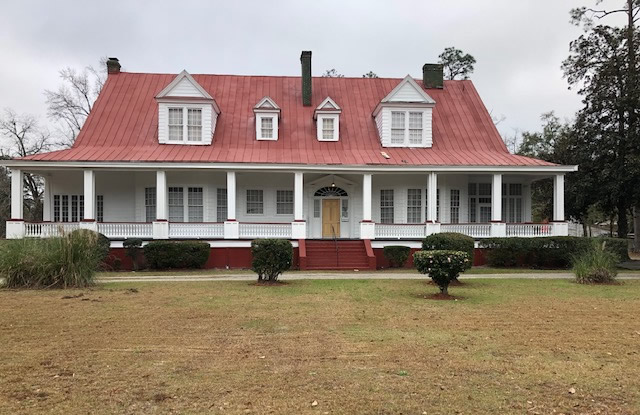
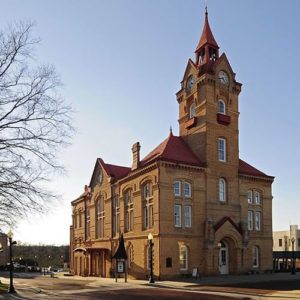

 We Can Do Better, South Carolina!
We Can Do Better, South Carolina!
























